Chipped, cracked, or discolored teeth?
Table of Contents
Dental crowns vs composite bonding. Wondering if composite bonding is enough—or if you really need a crown? This guide walks you through both options so you can make the right choice for your smile, confidence, and long-term oral health.
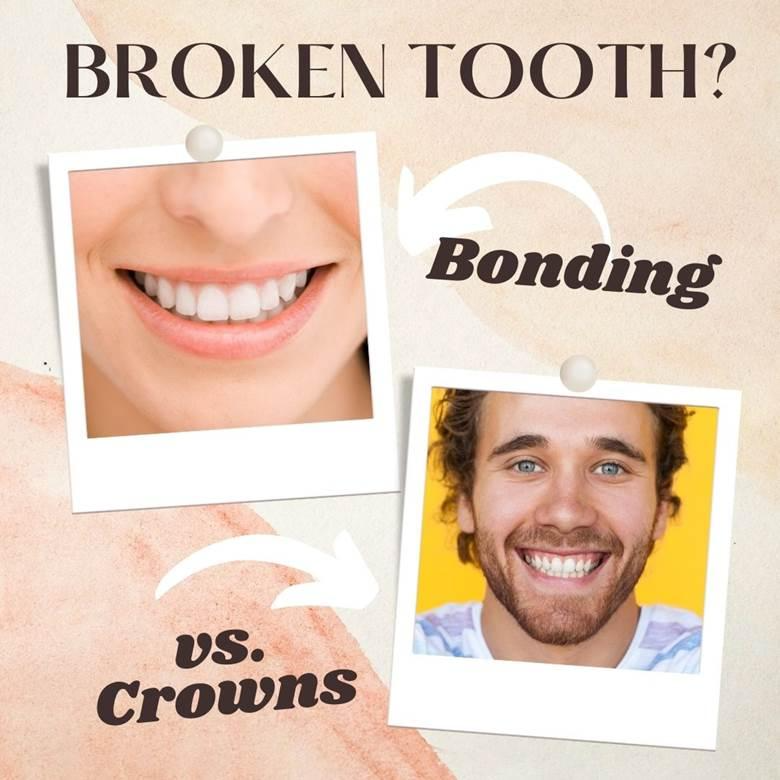
Composite Bonding vs Crowns – What’s the Difference?
In restorative dentistry, composite bonding and dental crowns are two standard procedures with different applications. Understanding the distinction between these two methods helps you and your dentist choose the best treatment option. The core differences lie in the amount of tooth coverage, durability, cost, and the specific use cases for each method, which is the central theme of the dental crown vs composite bonding discussion.
What Is Composite Bonding & When Is It Used?
Composite bonding is a minimally invasive cosmetic procedure where a tooth-colored material (composite resin) is applied directly to the tooth’s surface and hardened with a special light. This method is typically completed in one visit and requires minimal tooth preparation.
Common Uses:
- Repairing small chips on the edges of teeth
- Closing gaps between teeth (diastema)
- Covering stubborn stains on teeth
- Reshaping slightly misaligned teeth
Protecting a tooth root exposed by gum recession
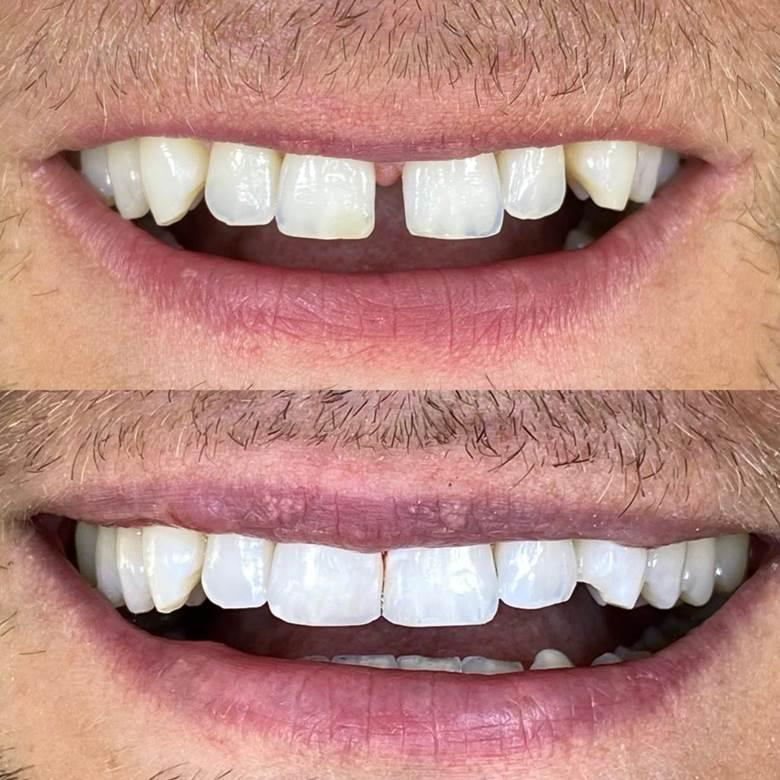
What Are Dental Crowns & Why Might You Need One?
Different types of dental crowns are custom-made, full-coverage caps that are permanently cemented over a tooth, completely encasing it. This procedure is designed for teeth that are severely damaged, require strong protection, or have undergone root canal treatment. This is a key differentiator in the dental bonding vs crown comparison.
Primary Reasons for Needing a Dental Crown:
- Protecting a weakened tooth after root canal therapy
- Restoring severely decayed or broken teeth
- Covering a dental implant
- Improving the appearance of severely misshapen or discolored teeth
- Anchoring a dental bridge securely in place
Ultimately, the choice depends on the condition of your tooth and your desired outcome. During a consultation at D’Amico Dental Care in Wayland and Watertown, we will perform a thorough examination and discuss the pros and cons of each option, helping you navigate the dental crowns vs composite bonding decision to find the best, most lasting solution for your smile.
Which Option Fits Your Smile Needs?
Choosing between composite bonding and a dental crown depends on the specific condition of your teeth. Each method is designed for particular problems, and being aware of these differences helps you make a better decision. This is the essential question at the heart of the dental crown vs composite bonding consideration.
Bonding for Small Chips, Cracks & Minor Cosmetic Fixes
Composite bonding is the best option for minor cosmetic issues and limited damage. This method is ideal for individuals looking to enhance their smile with minimal intervention. Bonding can effectively repair small cracks, minor chips on tooth edges, and gaps between teeth. It’s also used to cover stains resistant to whitening and to reshape slightly irregular teeth. The main advantage is the preservation of healthy tooth structure and completion of treatment in a single visit. This often makes it a preferred choice in the bonding vs crown front tooth discussion for minor front-tooth aesthetics.
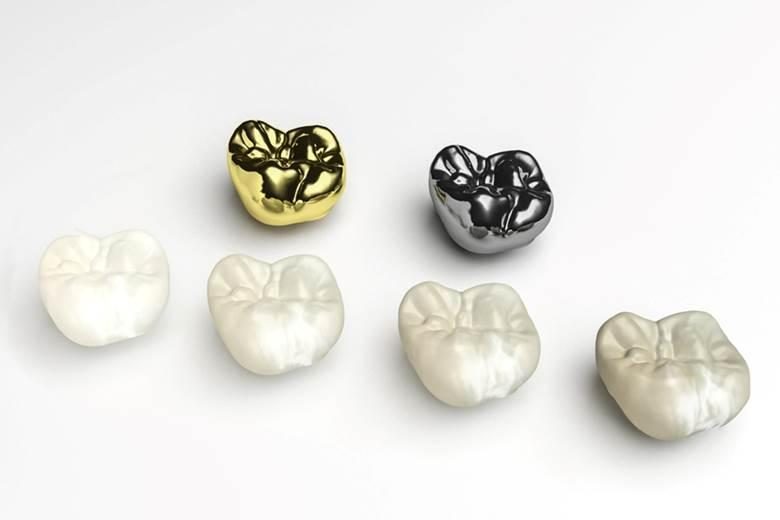
Crowns for Weakened, Heavily Damaged, or Root-Treated Teeth
A dental crown is recommended when a tooth requires complete and strong protection. This procedure is ideal for teeth that have lost more than 50% of their structure, have undergone root canal treatment, or have extensive decay. By fully encasing the tooth, a crown protects it from the forces of chewing and prevents fracture. Crowns are also essential for teeth that have received a dental implant or are being used as anchors for a dental bridge. For this level of structural restoration, exploring options for dental crowns in Wayland, MA, is the appropriate next step.
Front Teeth vs Back Teeth – Choosing the Right Solution
- For Front Teeth:
- Composite Bonding: Ideal for minor, quick cosmetic improvements.
- Crown: Necessary when greater strength is needed or the tooth has had a root canal.
- For Back Teeth (Molars):
- Crown: The superior option due to its ability to withstand high chewing pressure.
- Bonding: Recommended only for minor and limited repairs.
- For Front Teeth:
- Composite Bonding: Ideal for minor, quick cosmetic improvements.
- Crown: Necessary when greater strength is needed or the tooth has had a root canal.
- For Back Teeth (Molars):
- Crown: The superior option due to its ability to withstand high chewing pressure.
- Bonding: Recommended only for minor and limited repairs.
For a final decision, a professional examination by a dentist is essential. Our dentist will carefully assess the condition of your teeth and recommend the best treatment option for you. Understanding the pros and cons of dental bonding vs crowns for your specific situation is key. We invite you to schedule a consultation with our experts at D’Amico Dental Care in Wayland and Watertown to receive a personalised assessment and discover the ideal solution for your smile’s health and beauty, ultimately resolving the dental crowns vs. composite bonding debate with a confident and informed choice.
Pros & Cons You Should Know Before Deciding
Choosing between composite bonding and a dental crown requires a complete understanding of the benefits and limitations of each method. This evaluation will help you make the best decision based on your specific needs, which is the ultimate goal of the dental crown vs composite bonding comparison.
Benefits of Composite Bonding (Fast, Affordable, Minimally Invasive)
- Treatment Speed: The entire process is typically completed in one visit, with no need to wait for lab fabrication.
- Cost-Effectiveness: It is less expensive than a crown, making it a suitable option for those with a limited budget.
- Tooth Structure Preservation: This technique requires minimal tooth preparation, thereby preserving the healthy tooth structure.
- Color Matching: It allows for precise color matching to your adjacent natural teeth.
Advantages of Crowns (Strength, Longevity, Full Coverage)
- Durability and Strength: A dental crown’s longevity is typically 10 to 15 years, provided it receives proper care and exhibits high resistance to chewing forces.
- Complete Protection: Full coverage of the damaged tooth, preventing further fractures.
- Color Stability: Resistant to staining and discoloration over time.
- Function Restoration: Full restoration of tooth function, even in cases of severe damage. For this level of robust, long-term restoration, considering dental crowns in Wayland, MA is a wise investment.
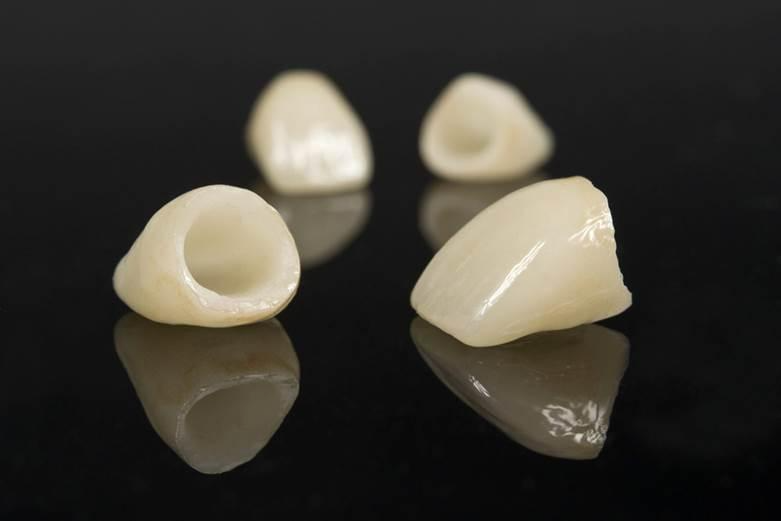
Limitations of Each Treatment You Need to Consider
Limitations of Composite Bonding:
- Shorter lifespan (3-8 years).
- Prone to staining from tea, coffee, and smoking.
- Less resistance to impact and pressure.
- Requires periodic polishing to maintain its appearance.
Limitations of Dental Crowns:
- Higher initial cost investment.
- Longer treatment time (usually 2-3 appointments).
- Requires a greater reduction of the natural tooth structure in the dental Crown Procedure.
- Potential for initial sensitivity after placement.
Understanding these pros and cons is crucial in the dental bonding vs crown decision-making process. To determine which option is truly the best fit for your unique situation, we encourage you to schedule a personalized consultation at D’Amico Dental Care in Watertown and Wayland. Our team will provide a thorough examination and discuss these dental crowns vs composite bonding factors in detail, guiding you toward the choice that ensures the health, function, and beauty of your smile.
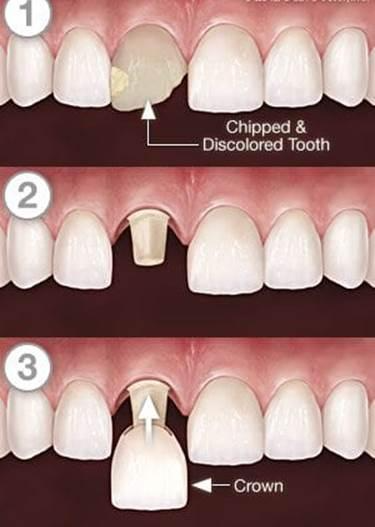
Cost Comparison – Bonding vs Crowns in Massachusetts
Understanding dental treatment costs in Massachusetts, especially in the Wayland and Watertown areas, helps you plan most effectively for your oral health. Costs can vary depending on the case’s complexity, materials used, and the dentist’s level of expertise. This is a key financial consideration in the dental crown vs composite bonding decision-making process.
Factors Influencing Pricing in These Areas
- Dentist’s Expertise: Specialists in restorative and cosmetic dentistry typically have higher fee schedules.
- Materials Used: Zirconia and E-max crowns are generally more expensive than other types.
- Case Complexity: The need for preliminary treatments, such as a root canal, affects the final cost.
It is highly recommended to consult with our dentists for an accurate cost estimate tailored to your specific situation. D’Amico Dental Care in Wayland and Watertown offers complimentary initial consultations to discuss your needs and provide a transparent breakdown of procedures, such as dental crowns, in Wayland, MA.
Life After Treatment – Caring for Your New Smile
After your treatment is complete, proper care of your crown or bonding is essential to maintain its beauty and function. By following simple yet important tips, you can protect your smile investment in the best way possible, ensuring you enjoy the benefits of your dental crown vs composite bonding choice for years to come.
Daily Care Tips for Bonding and Crowns
- Brushing: Twice daily with a soft-bristled toothbrush and non-abrasive toothpaste.
- Flossing: Daily, taking care around the area where the crown/bonding meets the gum.
- Regular Check-ups: Every 6 months to have the restoration assessed.
Specifically for Bonding:
- Avoid highly abrasive whitening toothpastes.
- Use a night guard if you grind your teeth at night.
Specifically for Crowns:
- Pay extra attention to cleaning around the crown margins.
- Use an antibacterial mouthwash if recommended by your dentist.

Foods & Habits to Avoid
- Foods to Avoid:
- Complex substances (ice, nuts, hard candy)
- Sticky foods (taffy, caramel)
- Heavily pigmented items (turmeric, coffee, tea)
- Harmful Habits:
- Nail-biting or chewing on pens
- Using your teeth as tools to open packages
- Smoking (which can stain bonding, You can Read The Smoking Effects on Your Tooth and Treatment procedure here. )
How Long Do They Last & When Should They Be Replaced?
- Composite Bonding:
- Lifespan: 3-8 years
- Signs for Replacement: Staining, chipping, wear.
- Dental Crown:
- Lifespan: 10-15 years
- Signs for Replacement: Looseness, fracture, decay at the crown’s edge. This longevity is a key advantage when considering dental crowns in Wayland, MA, for long-term oral health.
Can Bonding Be Done Over or Alongside Crowns?
- Bonding Over a Crown:
- Generally not recommended.
- Poor adhesion to the crown’s surface.
- Only suitable for very minor, temporary repairs.
- Bonding Next to a Crown:
- Perfectly possible and common.
- Used to adjust the shape of teeth adjacent to a crown.
- Creates better harmony in your smile, a service we expertly provide at D’Amico Dental Care in Wayland and Watertown.
Always consult with your dentist for any repairs or modifications to existing dental work. A professional assessment is crucial, whether you’re maintaining your initial treatment or navigating future dental bonding vs crown decisions to keep your smile healthy and beautiful. Proper maintenance is the key to maximizing the value of your dental crown vs composite bonding investment.
FAQ
1. How Long Do Composite Bonding and Crowns Last?
Bonding: 3-8 years
Crowns: 10-15+ years
Crowns are significantly more durable and long-lasting than composite bonding.
2. Can I Switch from Bonding to a Crown Later?
Yes, absolutely. Bonding can be removed, and the tooth prepared for a crown. In fact, crowns are often recommended when bonding fails or wears out.
3. Which Option Is Better for Front Teeth?
Bonding: Better for minor chips and small cosmetic fixes
Crowns: Better for severely damaged or discolored teeth
Crowns provide more comprehensive coverage and stain resistance.
4. Does the Procedure Hurt or Require Anesthesia?
Bonding: Usually, no anesthesia is needed
Crowns: Always require local anesthesia
Crown preparation involves more tooth reduction, making anesthesia necessary.
5. Can Porcelain Crowns Be Bonded?
Yes. Modern porcelain crowns are bonded to teeth using dental adhesive cement. This creates a strong, durable seal between crown and tooth.
6. Which Treatment Removes More Tooth Structure?
Bonding: Minimal tooth removal
Crowns: Significant tooth reduction required
Crowns require grinding down the tooth on all sides to ensure a proper fit.
7. Which Option Costs More?
Crowns are more expensive but last much longer.
8. Which Resists Staining Better?
Bonding: Stains over time like natural teeth
Crowns: Highly stain-resistant
Porcelain crowns maintain their color and appearance over the long term.
9. How Many Visits Does Each Require?
Bonding: Usually one visit
Crowns: Typically two visits
Crowns require a temporary crown while the permanent one is being made.
10. Which Provides More Strength?
Bonding: Moderate strength for cosmetic repairs
Crowns: Maximum strength and protection
Crowns fully encase the tooth, providing superior protection against fracture.

